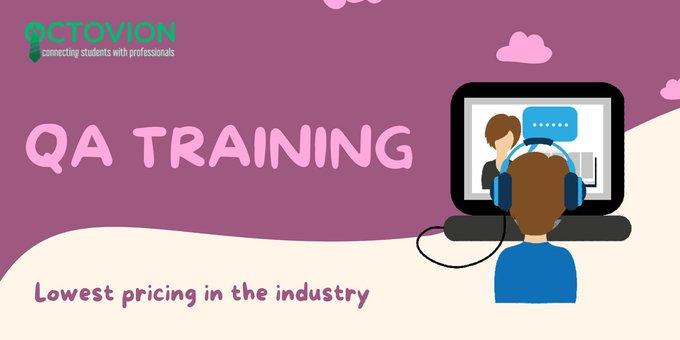Are you a budding QA enthusiast looking forward to landing a job at any cost in Quality Assurance but not knowing the right inroads on how? Well! You are in the right place. In this guide, we will talk through the essential steps you need to take right from where to take the QA testing training, how to build the right skills for acing interviews, and how to help you secure your first QA job in 2023.
With the IT industry taking rapid strides and the competition intense, you will want to land your first job, which is doable with effort and determination from your side, especially when you have no previous experience. First, let us see the essential skills a software tester must have to pursue a career in this field.
Essential Skills and Attributes of a Good Software Tester
The role of a software tester is a combination of technical and non-technical skills, which are important before applying for a QA job. Developing the following qualities will set you on the path to becoming a valuable asset to any tech team.
- Attention to Detail: The first thing to remember as a software tester is attention to detail. Being meticulous and thorough is vital. You'll need to spot even the most minor flaws or potential risks in software as they may interfere with product functionality or user experience.
When detecting or running tests, even the most minor glitches, such as misplaced buttons or type, must be brought to the notice of the stakeholders. This is an important aspect we teach learners to focus on in our QA testing training.
- Communication: Clear and effective communication is crucial. You'll be reporting complex technical issues to developers, so your explanations must be easy to understand, and can fix problems efficiently.
- Analytical Thinking: A logical way of thinking is essential when testing for potential programming issues. You will analyze software behavior, so the ability to break down complex problems into simpler parts is crucial.
Having solid skills and the ability to detect flaws by examining code, user interaction, and system logs is essential before you provide detailed reports to developers. As part of the case studies in our QA testing training, we will cover that in depth.
- Time Management: Meeting deadlines is essential. You should be able to manage your time well as you must prioritize tasks and work such as test execution, bug reporting, and test case creation within tight deadlines.
- Adaptability: Software testing often involves changes. The tester must be flexible and ready to adapt to new requirements. For example, there may be last-minute changes in the software requirements or design; therefore, quickly adjusting test strategies within the time frame becomes essential.
Also, proper collaboration must be present with developers, product managers, and fellow testers to improve the overall software quality.
- Technical Proficiency: Using multiple testing tools, the tester must create effective test cases covering various software functionality aspects. Therefore, familiarity with QA testing tools like Selenium for automated testing or Jira for issue tracking is necessary.
Also, a deep understanding of the specific industry or domain the software serves, such as e-commerce or healthcare, is a must to identify better and run relevant test cases.
Tips on How to Get a QA Testing Job
Landing your first software testing QA job in the US can be a rewarding experience. To help you get started on your journey, here are six valuable tips you can follow.
1) Identify your skills and interests
Before you begin to apply for jobs as a QA tester, it is essential to identify your skills and interests. Explore how your skills are relevant to the position and study the industry in depth. Seek industry knowledge from experts, which can give you an edge you can use during interviews to showcase your suitability for the role.
2) Avail Proper QA Testing Training and Certification Opportunities
While a degree is preferred for most jobs, having a valid certification and hands-on experience can make your resume stand out. Consider enrolling in QA Testing Training on platforms like Octovion, Voogun to enhance your skills.
These platforms offer QA training and placement opportunities, practical experience, and IT terminology and concepts exposure. Lifelong learning is crucial in the ever-evolving IT industry, so be open to continuous education. Develop skills in writing test cases, executing test scripts, and reporting bugs effectively.
3) Network Within the Industry
Networking is a powerful tool for finding job opportunities and gaining insights. Attend software testing events and join online QA communities to connect with professionals. Join social media groups and participate in local tech events. Remember to contact your dream companies and startups in your area for potential job opportunities.
4) Apply for Positions and Follow Up
We at Octovion offer customization of your resume for each job you apply for, demonstrating your highlights once students complete our QA testing training. We also recommend that you follow up with potential companies and employers you wish to express your interest. Always remember that persistence and determination are crucial to landing your first IT job.
5) Leverage Past or Current Employers
Tap into your connections on LinkedIn or ask past or current employers if they need a software tester or can refer you to others in the industry. Prior experience and contacts can be advantageous in your job search.
6) Certifications Matter and Build a PortfolioHaving a certification and a portfolio is crucial for career advancement. Consider obtaining certifications like ISTQB (International Software Testing Qualifications Board) to validate your skills. Also, build a portfolio that showcases your testing projects with details such as the applications you tested, test plans, and results showcasing your practical abilities.
Following these steps and remaining committed can increase your chances of landing a QA testing job in the USA. Feel free to contact us by dialing +1 (609) 454-2464 or email [email protected] to learn about our latest QA testing training batch.
